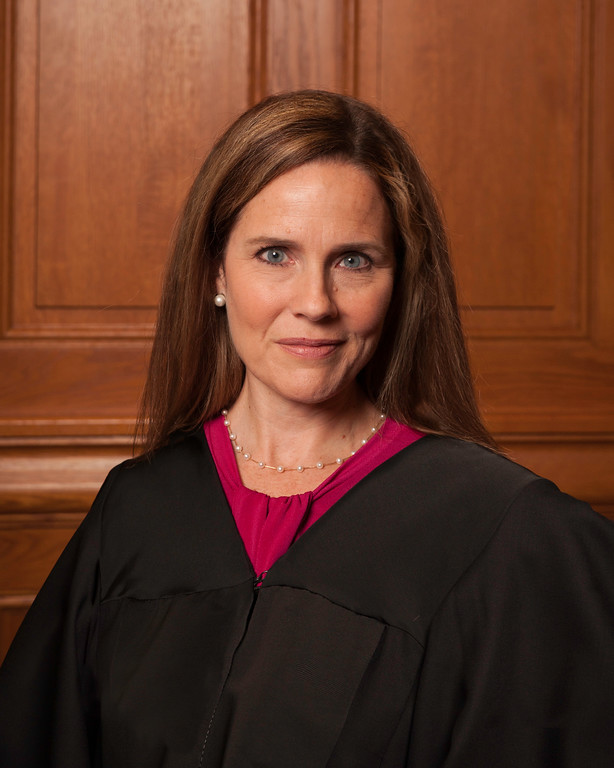 As the Senate voted (52-48) to confirm Amy Coney Barrett to the U.S. Supreme Court, despite an ongoing election in which more than 63 million Americans have already voted, know this: It’s not over. Now we fight, not for one seat, but for the entire federal judiciary.
As the Senate voted (52-48) to confirm Amy Coney Barrett to the U.S. Supreme Court, despite an ongoing election in which more than 63 million Americans have already voted, know this: It’s not over. Now we fight, not for one seat, but for the entire federal judiciary.
As even more Americans stood in line and filled out ballots, Barrett took the oath of office at the White House in a ceremony last night that mirrored the superspreader event announcing her nomination just one month ago. Barrett was touted as a popular pick, a conservative talking point belied by Gallup polling numbers. Brett Kavanaugh (+4) and Barrett (+5) are the most unpopular nominees since Robert Bork (+6). Bork went through the nomination process and the Senate voted him down 58-42, with bipartisan opposition. Harriet Miers, whose nomination was so unpopular that it was withdrawn, polled at +8.
Barrett’s unpopularity is partly due to the illegitimate process — this is another stolen seat — and partly due to her conservative zealotry.
This entire process is unprecedented. In the middle of a pandemic — with the president, vice presidential aides and some senators on the Judiciary Committee all contracting COVID — and in the midst of an election, Barrett became the first justice in more than 150 years to be confirmed with no votes from the minority party. And, despite claims to the contrary, the timeline is truly unprecedented.
The Senate Judiciary Committee broke its own rules to rush Barrett to the floor. Sen. Angus King, I-Maine, condemned the larcenous process and asked: “But if all of this rule-breaking is taking place, what does the majority expect? What do they expect? They expect that they’re gonna be able to break the rules with impunity and when the shoe, maybe, is on the other foot, nothing is going to happen?”
The cherished constitutional principle of separation between state and church is in danger because Barrett is a religious zealot who will put her personal religious beliefs above her oath of office. Barrett is a threat to many of the other issues that FFRF members work for and care about. Roe v. Wade, racial equality, LGBTQ equality — including equal marriage, reproductive justice and even the right to birth control — are at risk. More broadly, health care is in jeopardy in the midst of a pandemic that has so far killed 220,000 Americans. This is partly why the Barrett vote was so rushed.
FFRF’s full report on Barrett, including her desire to put prayer back in public schools and her stated willingness to use governmental power to promote her personal religion, may be found here.
The battle for this seat is done, now the fight shifts to a bigger battlefield. The high court has already been packed with Christian Nationalists like Barrett and Kavanaugh. By the end of this congressional term, there may be more than 250 President Trump-appointed judges in our federal courts, including 30 percent of all federal circuit judges and about a quarter of all district judges. The courts have been captured. We now need to think about unpacking, rebalancing, correcting and expanding the courts.
It increasingly appears that the struggle to retain and defend the all-American principle of separation between religion and government must encompass a campaign to rebalance and reclaim our courts from theocrats like Barrett.
With your support, the Freedom From Religion Foundation will continue to champion the First Amendment in the courts and fight Christian Nationalism and the union of state and church in the court of public opinion.
Our fight has never been easy and it just got a lot harder. We are up to the challenge, but we need your help.

